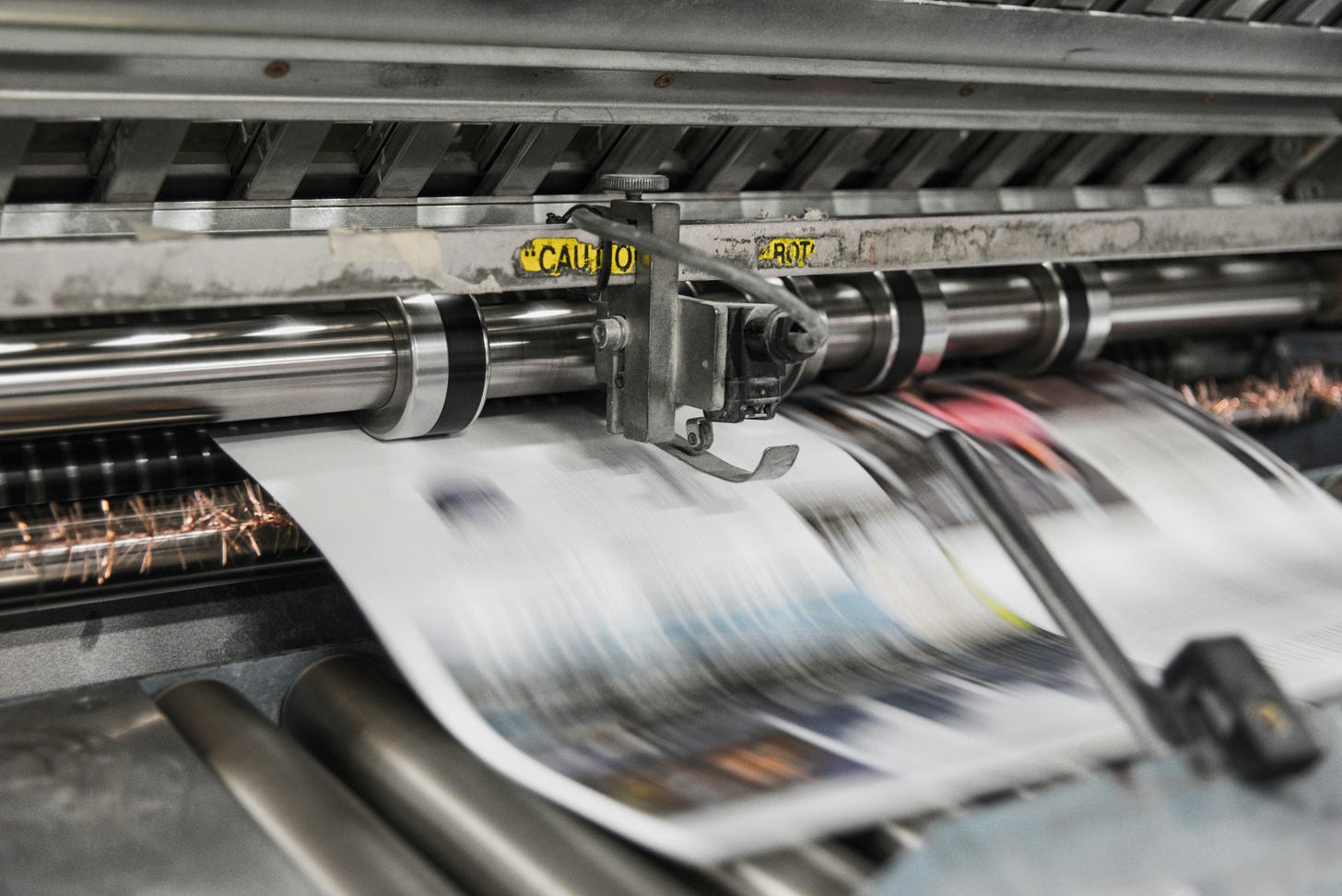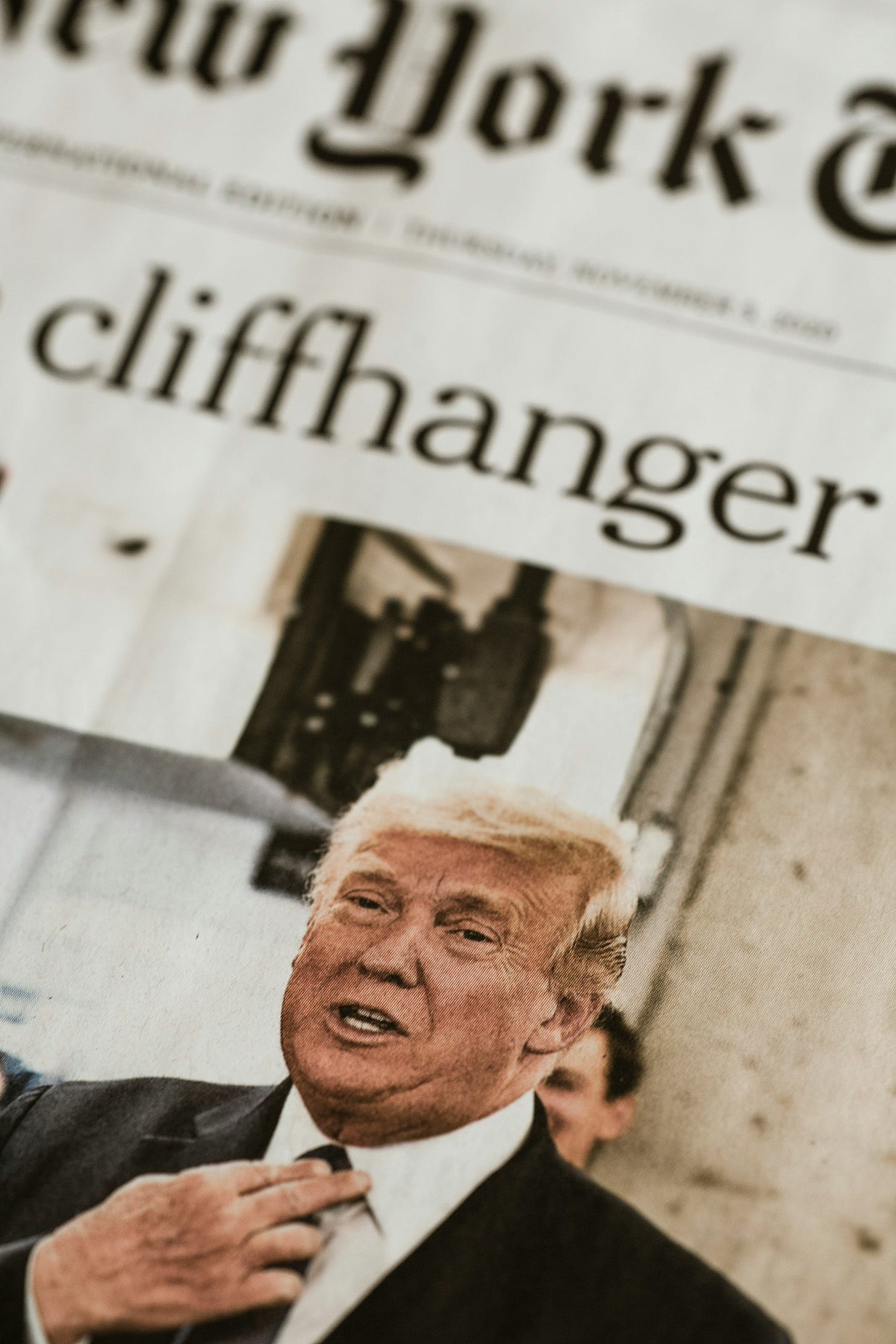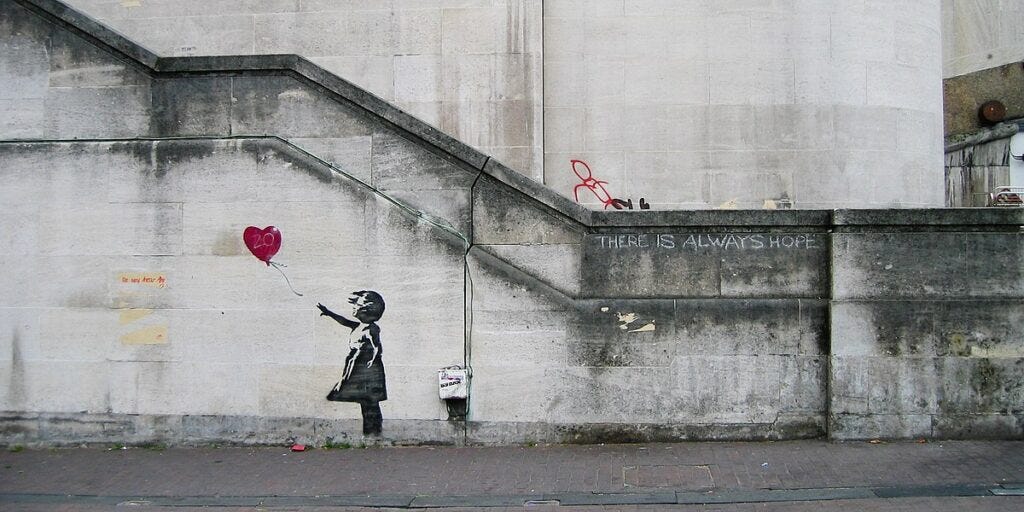It's your future - handle with care
Gillian Lord looks at a rapidly shifting global landscape, an increasingly polarised world and democracy seemingly under threat. What can Scotland do? More than you think...
Soon it’s time for the new year wish list, the resolutions, the predictions. For my wish I hope Scots ca canny, that we take responsibility for educating ourselves about our own future. Ignorance is not going to cut it in 2025.
It’s like the movies when you know what’s coming next for the victim. Don’t go in there, you want to shout, can’t you hear the ‘danger music’?
Innocent victims usually don’t stand a chance. If they’re somehow aware of the danger they could make different choices (do not go into the empty house alone…) but then we wouldn’t be watching the movie, would we?
That’s how today’s geopolitical landscape feels, and it all could have been so different. We didn’t need to be here; we couldn’t possibly have been so ignorant. Or could we?

Public information has changed. It’s no longer the comparatively responsible world of carefully curated news gathering and telling. It’s been captured by oligarchs, vested interests and propagandists.
Vested interests and propaganda dominate in Scottish media; the only other country I have lived in with such partisan media promoting a single message was apartheid South Africa.
The vast majority of conventional media here is Unionist and extremely hostile to the socialist democracy (and independence mandate) of the SNP government. Don’t get me wrong – if the SNP is wrong about anything, it should be called out. That’s democracy.
The one-note narrative
But Baby Boxes? What was ever wrong with introducing those, derided here and praised in Finland? Or the Deposit Return Scheme, sabotaged for purely political reasons? Or Scotland’s devolved NHS, which is better funded and consistently ‘scores’ above England’s on essential criteria?
It’s a long list. But the media narrative is largely ‘SNP bad, Scotland a failure’. Or, in the case of BBC Scotland, where Labour’s Anas Sarwar is being platformed as leader of Scotland (note: he’s not) often what they say is as much propaganda as what they don’t say, what they leave out.
We live in a post-truth era. The information narrative has been reset.
It’s no surprise that ‘brain rot’ is the Oxford Word Of The Year. Described as “the supposed deterioration of a person’s mental or intellectual state, especially viewed as the result of overconsumption of material (now particularly online content) considered to be trivial or unchallenging.”
And why does it matter? Because the world feels like a very dangerous place right now, the real dangers of global warming, global hostilities and an avaricious, conscience-free oligarchy all vying for a share in our destruction. We must keep ourselves better informed. The likes of Xitter is not a place for this.
The consequences of the US Presidential Election will reverberate around the world. How Donald Trump was elected to a second term as President of the United States will be discussed for years. But the fact is he has been, and the shape of democracy as we know it will inevitably change.
Almost immediately after that election social media commentators reported a huge spike in US searches for ‘Can I Change My Vote’. Yes, it happened.
A significant spike was also reported in US Google queries such as ‘how to move to Scotland’ and ‘how to get Scottish citizenship’ – as well as citizenship in New Zealand, Ireland and Canada.
Buyers’ remorse
In the UK, buyers’ remorse settled in very quickly after Labour’s victory in the July general election. Keir Starmer’s approval rating dropped to -39% at the end of October, the biggest fall in a British prime minister’s approval ratings in the modern era.
In that Westminster election the SNP lost 39 seats, with Labour gaining 37 – bear in mind Scotland only gets 57 Westminster seats in total. Scotland governs itself through a devolved parliament, with limited powers, at Holyrood.
Labour’s victory has largely been attributed to the simple cut-through message that Labour would bring change. Exactly what that meant was vague, but for an electorate wanting change it was enough.
It has so far meant a cut in Winter Fuel Payments, plunging many vulnerable people into further misery (the Scottish Government has since mitigated this). It meant a retention of the Two Child Benefit Cap (Scotland will mitigate this, too), additional taxes in the form of an increased National Insurance Contribution on employers, a further adherence to austerity, and more.
It doesn’t feel like the sunlit uplands. And the hard-right Reform Party is gaining ground as an increasingly dissatisfied electorate further polarises.
How did we get here?
We live in a time of personality over policy, of half-truths and sharp slogans, now normalised in political and social life. It’s a perfect storm, a confluence of events a long time in coming.
The way we get our information and who controls it is a key factor.
Mainstream media, or traditional media as it was, is apparently in fatal decline. It all started when the World Wide Web, the Internet, took off in the 2000s. Suddenly information was available freely (and largely for free) and at our fingertips. Even better for the average consumer, it was packaged as entertainment.
Media barons, Rupert Murdoch famously among them, at first shunned this new competitor, an alien and almost phantom foe that didn’t compete on terms they understood.

But others understood – the likes of Mark Zuckerberg at Facebook, Sergey Grin and Larry Page at Google, Jack Dorsey at Twitter. And so the new media landscape, or information age, took shape. And with it, the birth of the post-truth generation.
Donald Trump called information he didn’t like Fake News, and it stuck. News and information, once so much more carefully curated, is now a free-for-all of opinion. How do we know what’s true? Who do we believe?
Much of what we see, hear and read is in the hands of government, corporate or profiteering interests who have our own welfare and interests at the bottom of their list.
‘They’ want us to believe what they think we should – and from the moment you log on to the internet, from every Google search, or Instagram like, or TikTok video, there is a very clever, dispassionate algorithm tracking your behaviour, your likes and dislikes, and influencing what you see. This is not paranoia, this is your reality. It’s fact.
And it’s here you are more easily led away from the truth, away from sound policy, careful consideration, from science and wisdom, and into the arms of actual fake news and propaganda.
Who do we believe?
It was Michael Gove who famously said we’ve had enough of experts in the run up to the EU Referendum. Now, as the reality of Brexit bites, how is that working out for us? Who should we listen to? Joe Rogan?
In a further nod to the decline of conventional media, during their campaigns both Kamala Harris and Donald Trump gave interviews to podcasters with followers in the many millions.
He to Joe Rogan, former UFC commentator and stand-up comedian with political views that can best be described as eclectic, and she to Alex Cooper’s Call Her Daddy, a kind of blend of sex and relationship advice and stories.
The Joe Rogan Experience is the world #1 in podcasts, averaging some 18 million viewers per episode. Call Her Daddy is second at around 10 million – compare that to the average viewership for a CNN daily broadcast at around 500k. Or the New York Times print subscriber base of 296,000. Or the daily readership figures of UK titles, which come in below a million, at the top of the list, in a country of 65 million people.

The mainstream media may not dominate the narrative anymore but it still plays a big part in setting it, and it’s to this end that right-wing media has been significantly and consistently bolstered by big money.
As Sussex Bylines reports in an impassioned plea for a for a free press, just three companies control 80% of newspapers in the UK – News Corp (Murdoch family), the Daily Mail & General Trust (DMGT, Viscount Rothermere’s lot) and Reach plc. Add to this the arrival of the right-wing GB news, and the blatant capture of the BBC, especially in Scotland, and it’s a lopsided landscape.
In the UK there is not much corresponding on the left – the best example is The Guardian, funded by the Scott Trust, which exists to keep The Guardian, The Observer and other titles free of commercial and political pressures, and free to report the truth as they see it.
A bitter reality
Ironically, at time of writing Guardian journalists are out on strike for the first time in 50 years, in protest at the proposed sale of the Observer - essentially the Sunday Guardian, it’s one newsroom - to the relatively new Tortoise Media.
The objection is that this violates the bedrock premise of what the Guardian is intended to be, for reasons including that Tortoise’s revenue stream (it’s been running at a loss) could lead to the commercialisation of the Observer, and inevitable fealty to the commercial interest of advertisers and the death spiral of click-bait news that has killed so many once-proud mastheads.
For more read Carole Cadwalladr’s excellent piece on her Substack, The Power. It’s as much a testament to the true purpose of journalism as it is loyalty to the purity of the ideals behind the Guardian.
There is good news
So here we are. But the good news is the growing groundswell against populism and fascism – the wonderful story of the enormous take-up of Bluesky by millions deserting Twitter is heartening. Bluesky now has 24 million users with numbers climbing every second.
The rise of independent media in the UK is another encouraging sign. Byline Times and its regional Bylines Network are both growing voices, through the support of a public wanting credible information. There’s a Scottish component to Bylines Network too.
Ditto the rise and rise of podcasts like The Newsagents, and a host of credible, readable Substack accounts - and a fair few with a Scottish focus.
The information is out there but you need to go and find it for yourself. Knowledge really is power and it’s a bumpy ride ahead.
The alternative is ignorance. Do you want to be Googling ‘is it too late to change my vote’ or, even worse, ‘how can I get my democracy back?’
I certainly don’t. I’ve lived in a fascist country. The suffering doesn’t happen to other people. It happens to you, too.






